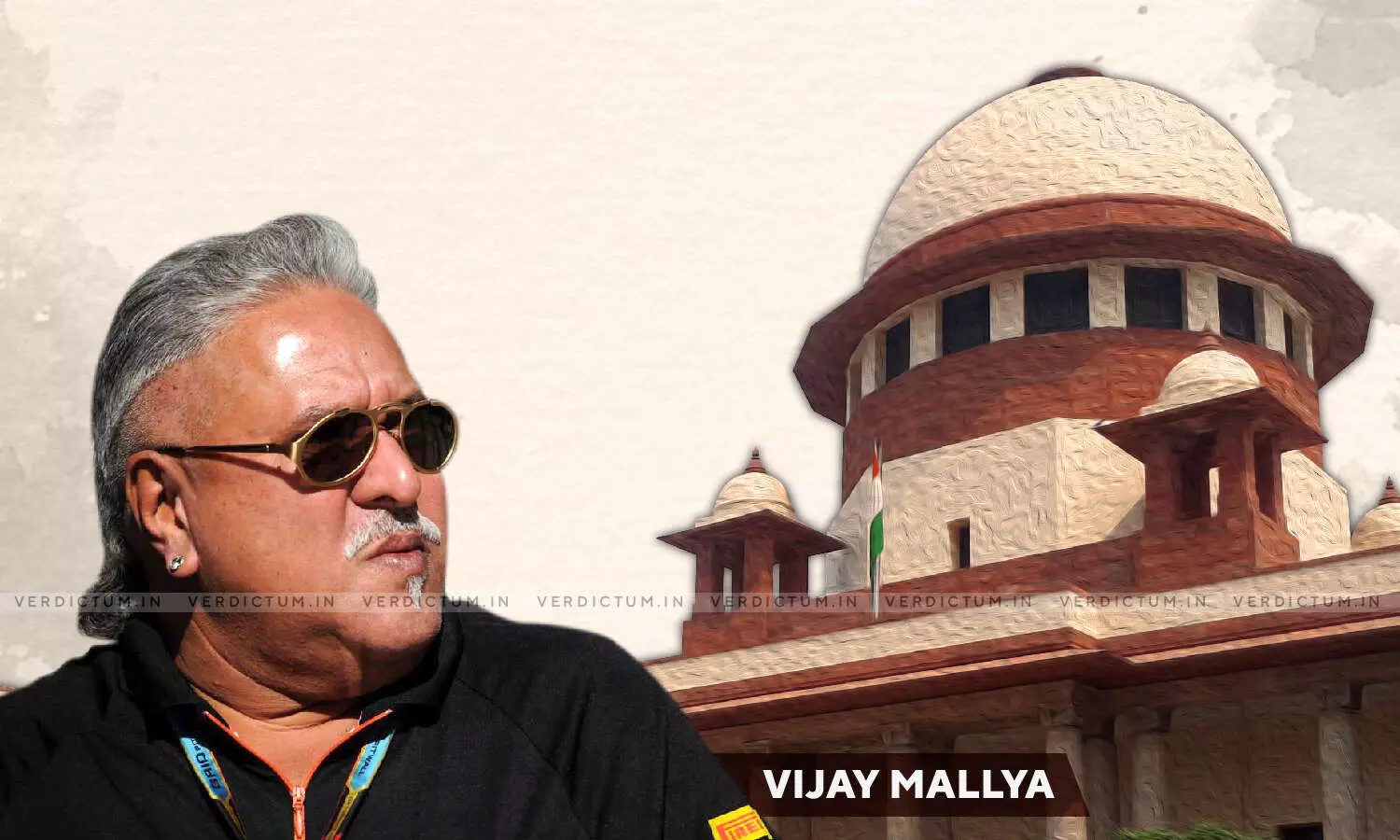
Supreme Court Reserves Order On Quantum Of Sentence In Contempt Case Against Vijay Mallya
 |
|The Supreme Court today reserved its order on the quantum of sentence in the contempt case going on against Vijay Mallya.
The Bench comprising of Justice U. U. Lalit, Justice S. Ravindra Bhat and Justice P. S. Narasimha heard the Amicus Curiae Senior Advocate Jaideep Gupta who submitted that the Court has given several chances for Mallaya to appear before it. It was submitted by Amicus that since the day the judgment was passed till today the gap is because of the proceedings going on against him in United Kingdom.
The Center, through Solicitor General Tushar Mehta had apprised the Court that some proceedings are going on against him, which the UK government has not disclosed.
Justice Lalit observed that "we have been told by the Government that something is pending, what is pending we don't know, when will it get over we don't know, in which court is it pending we don't know, so it is like a dead end".
The Amicus also submitted that the Court can proceed ex parte as there is no justification for him for not engaging a counsel to represent him in the Court.
The Bench also observed that "orders indicate that we have granted him opportunity time and again."
The Bench also observed that Vijay Mallya is not in custody in the United Kingdom and he is a free person there and can move around. The only reason given is that there are proceedings initiated against him.
The Bench noted that the service of the judgment and the dismissal of the subsequent review petition was done through Hartfordshire Constabulary.
While considering the punishment for contempt, the Amicus submitted is that while giving the punishment, the difficulty that the Court would face would be the absence of the contemnor. Amicus went on to submit that sequestration would be a way by which the contemnor may be punished or both the ways punishment as well as sequestration can be used.
The Bench then raised the question as to whether the assets can be retrieved because the assets in India are already attached in other cases and the foreign assets and money have been transferred to his family members by way of gratuitous transfers. The Court asked whether such transactions can be reversed and money be received.
Amicus submitted that, "Your lordships may reverse the transaction. But your power of sequestration isn't limited to that transaction, some other asset of his can also be sequestered." The Counsel for the banks submitted that the recovery officer is well equipped to go after the money.
Counsel for Vijay Mallya appeared before the Court and submitted that the previous orders were brought to the notice of contemnor and handed over a copy of communication between him and the contemnor which stated the inability to provide any information on the pending proceedings in the United Kingdom.
The Apex Court had previously passed an order and given him a final opportunity on the suggestion of Amicus Curiae Senior Advocate Jaideep Gupta. He had submitted before the Court that a final opportunity may be given to the Respondent to appear before the Court and advance his submissions. It was also submitted by the Amicus that, "the requirements of Principles of Natural Justice stood sufficiently complied with and adequate opportunity was afforded to respondent."
The Supreme Court had, on a petition filed by the banks alleging that Vijay Mallaya was not disclosing his assets and that while he owed money to the tune of Rs. 9000 crores and had transferred an amount of $40 million to his children, held that Vijay Mallya was guilty of disobeying the orders passed by the Court.